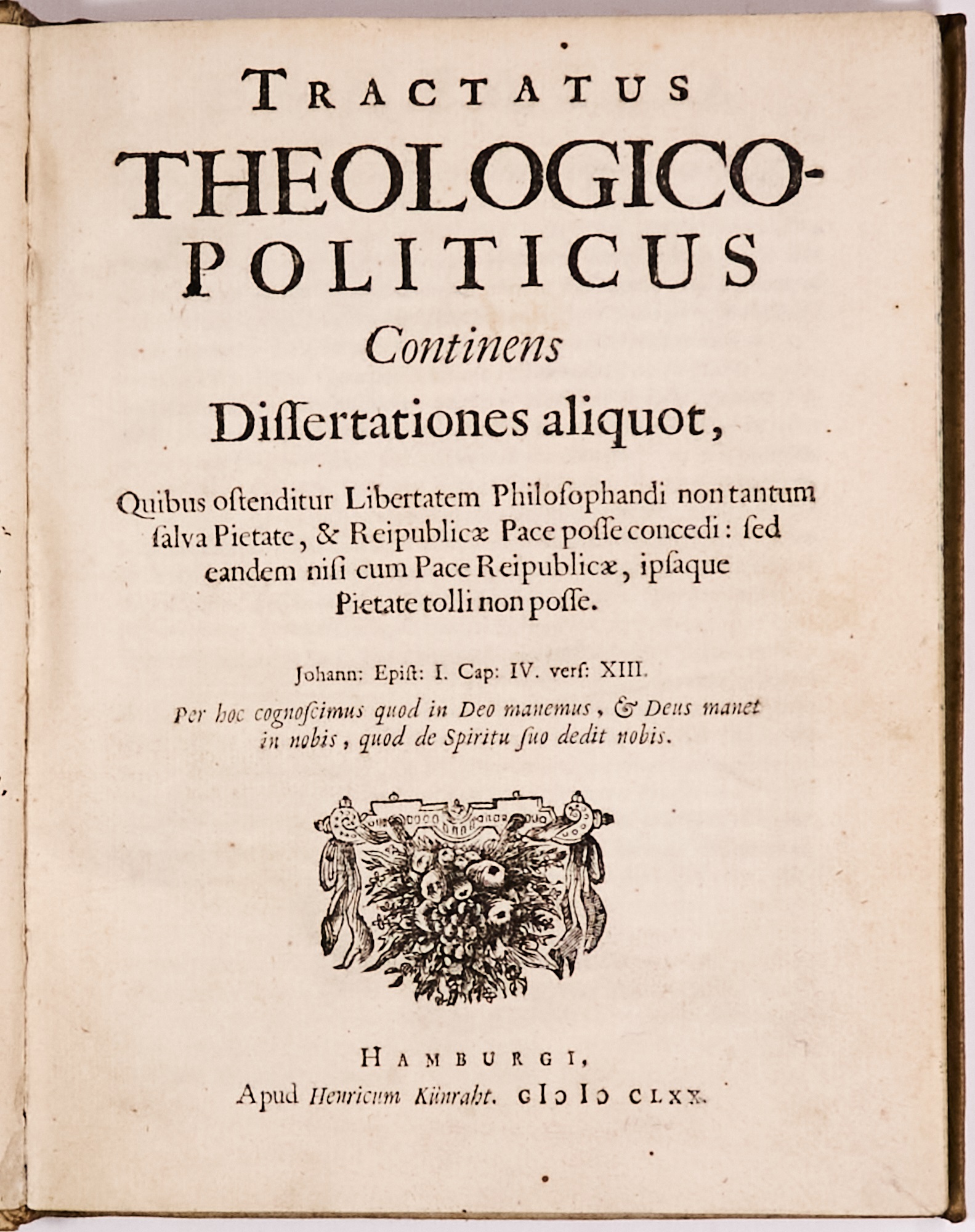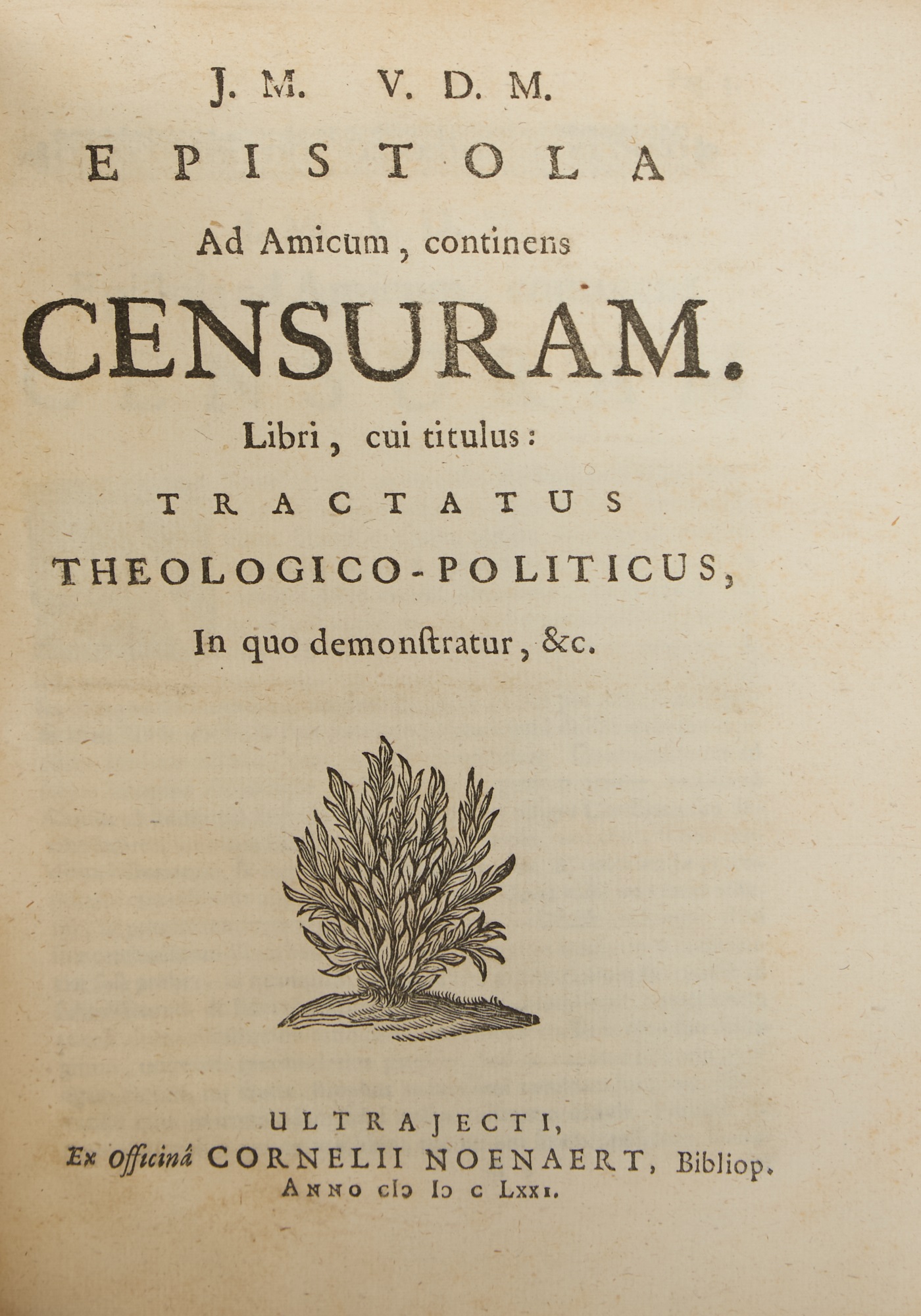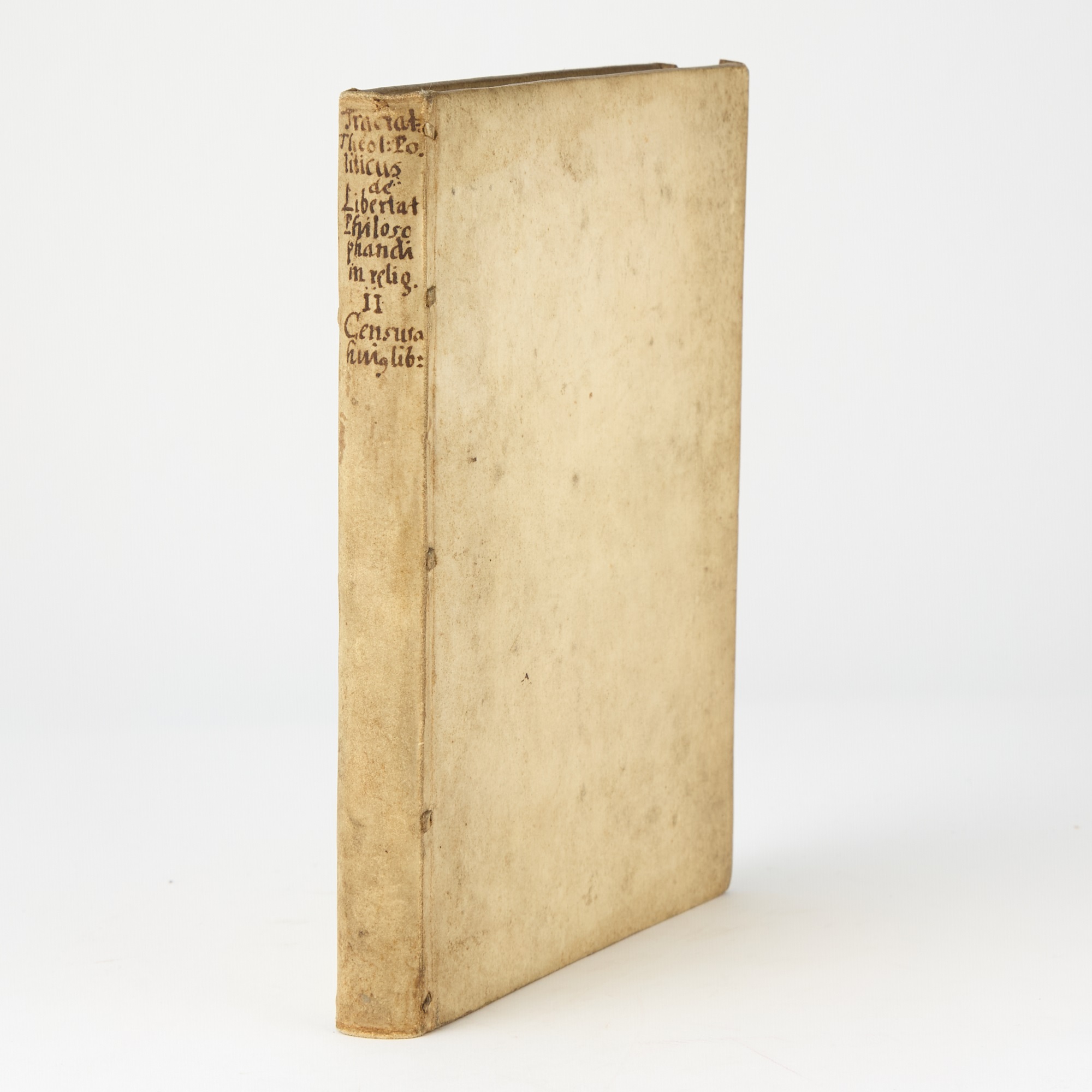rare first edition of Spinoza's Tractatus Theologico-Politicus
SPINOZA, BARUCH. Tractatus Theologico-Politicus Continens Dissertationes Aliquot
Hamburg: Heinrich Künraht [i.e. Amsterdam: Rieuwertsz], 1670
Contemporary vellum, hand-lettered spine, edges sprinkled blue. A fine copy.
First edition of this landmark of 17th-century thought, the Theological-Political Treatise.
This is the rare first edition, readily identified by the misspelled “Künraht” imprint and the mis-numbering of page 104 as 304. “Although there is only one genuine first edition, the other quarto editions also pretend that they were printed in the year 1670. … The reason for this is that the work was highly controversial: although formally banned only in 1674, it was considered illegal from its publication and there were attempts to have it repressed from the very start. So the Amsterdam publisher, Jan Rieuwertsz, had to be careful. He did not reveal his identity on the title page (which carries a fictitious imprint: Henricus Künrath in Hamburg), and when there was a demand for reprints, it was important to make the book look like copies left over from the original 1670 issue, rather than newly printed ones” (Melamed and Rosenthal).
Baruch Spinoza is a giant of 17th-century thought and a key figure of the Enlightenment. “He made significant contributions in virtually every area of philosophy, and his writings reveal the influence of such divergent sources as Stoicism, Jewish Rationalism, Machiavelli, Hobbes, Descartes, and a variety of heterodox religious thinkers … He is usually counted, along with Descartes and Leibniz, as one of the three major Rationalists. … Spinoza has remained an enormously controversial figure. For many, he is the harbinger of enlightened modernity who calls us to live by the guidance of reason. For others, he is the enemy of the traditions that sustain us and the denier of what is noble within us” (IEP).
“Spinoza’s thought, a fusion of Cartesian rationalism and the Hebraic tradition in which he grew up, is a solitary but crystal clear exposition of the theory of natural right. He defends with eloquence the liberty of thought and speech in speculative matters, and the Tractatus contains the first clear statement of the independence of each other of philosophy and religion” (PMM). Spinoza held that “Man is moved to the knowledge and love of God; the love of God involves the love of our fellow men. Man, in order to obtain security, surrenders part of his right of independent action to the State. But the State exists to give liberty, not to enslave; justice, wisdom, and toleration are essential to the sovereign power” (Printing and the Mind of Man 153).
Spinoza’s Tractatus Theologico-Politicus was a notorious book in its own time both for what it attacked and for what it advocated. Spinoza scrutinized religious teachings and Scripture to argue that they were mere products of the human mind. At the same time, he “believed that the political model of the ancient Hebrews could be imitated in certain key respects. … Unlike Hobbes, whose social contract theory justified absolute monarchy, Spinoza argued that democracy was a preferred form of government. And, finally, he thought that the state would be better off if it granted limited religious toleration and the freedom to philosophize” ((Melamed and Rosenthal, eds., Spinoza’s Tractatus Theologico-Politicus: A Critical Guide).
The author’s concerns about political repercussions delayed publication of the book for years. It finally appeared anonymously in 1670 with a false imprint. The Tractatus was soon placed on the Index of Prohibited Books and was interdicted in Holland. Leibniz rejected its scandalous arguments, while Hobbes is said to have declared, “I durst not write so boldly.” Spinoza has come to be embraced by many seemingly irreconcilable “-isms” including liberalism, Marxist materialism, conservatism, and Zionism.
The first printing of the Tractatus is rarely found in this excellent condition. This true first edition has become a rare book in a period binding.
Printing and the Mind of Man 153. Van de Ven, Printing Spinoza, T.1.
[bound with:] Johannes Melchior, Epistola Ad Amicum, Continens Censuram. Libri, cui titulus: Tractatus Theologico-Politicus (Utrecht, 1671). This is an attack by the Dutch Cartesian on Spinoza and his writing.
Provenance: 1809 inscription; bookplate of Karl Sieveking (d. 1847, Syndicus of Hamburg, diplomat, politician, and patron of the arts).
$120,000





